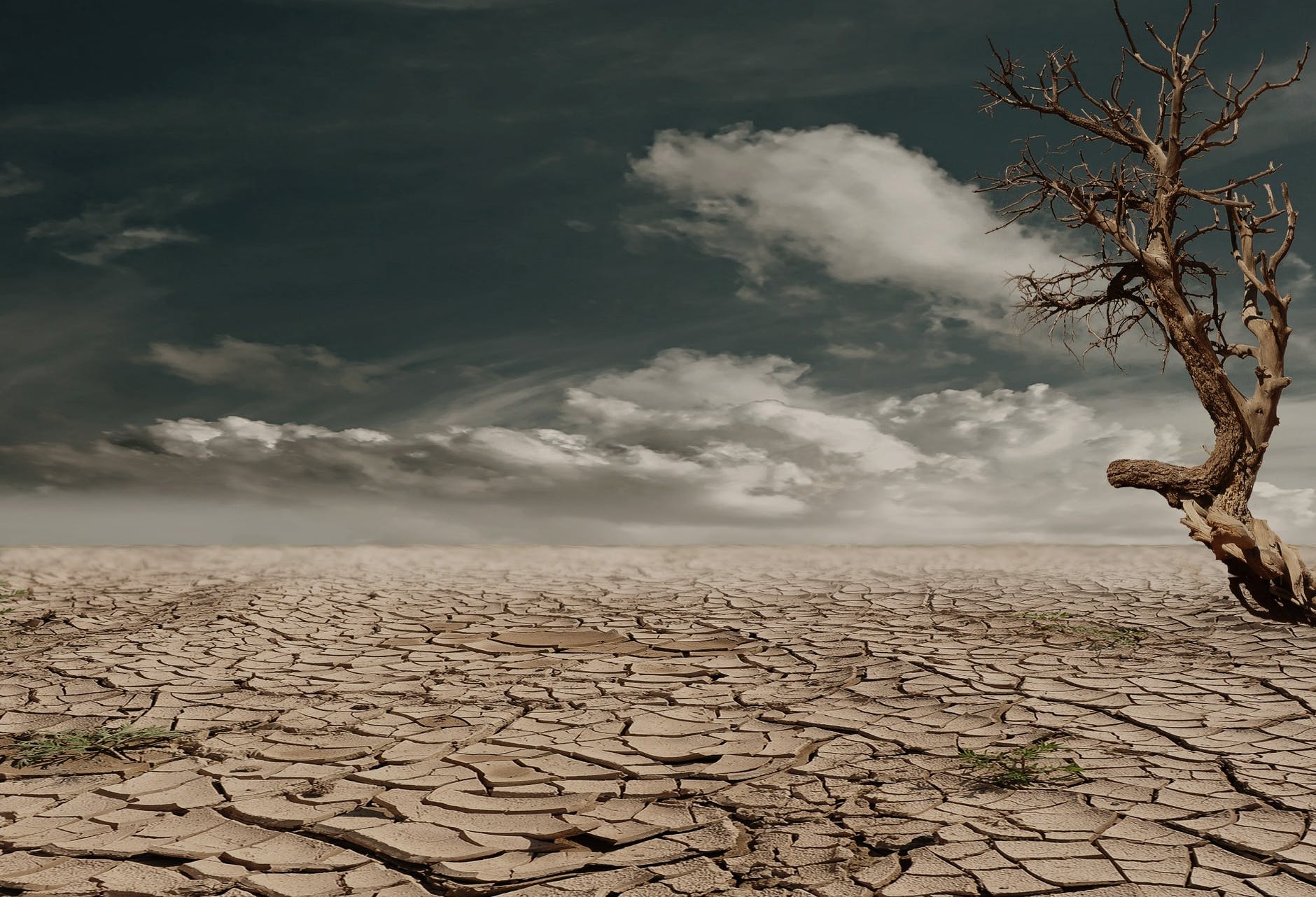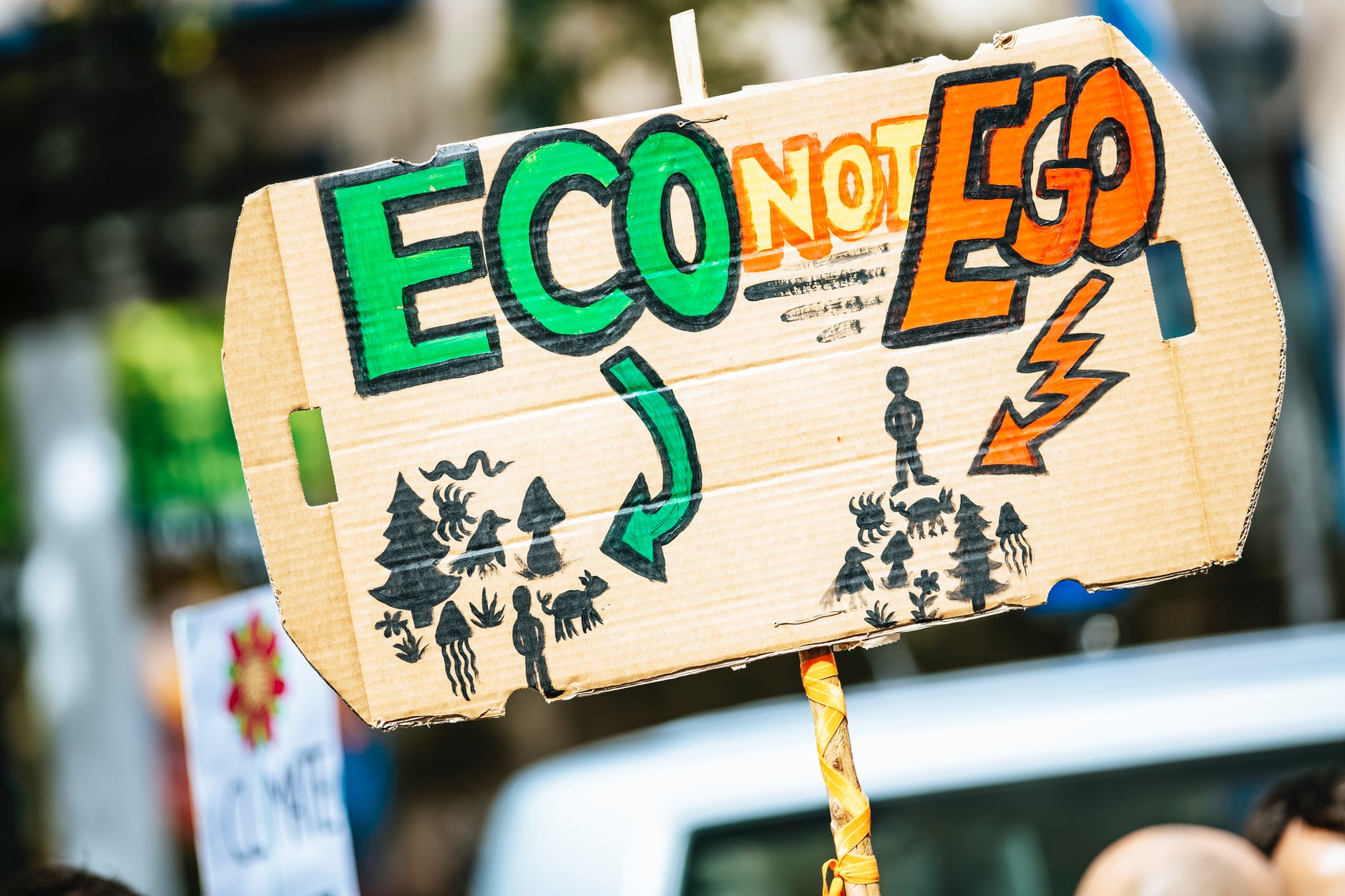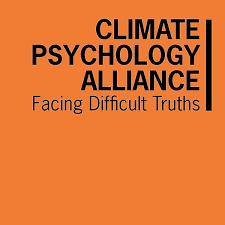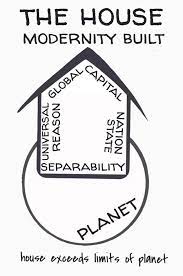Tags
“Shifts in Being”, Climate Psychology, Climate Psychology Alliance (CPA), Climate-Distress, Deep Adaptation: Navigating the Realities of Climate Chaos Edited by Jem Bendell & Rupert Read, Eco-Distress, Eco-psychology, Gesturing Towards Decolonial Futures (GTDF), Societal Collapse, The c-o-s-m-o-s remedy (Bendell), The House Modernity Built (GTDF), The ideology of e-s-c-a-p-e (Bendell)

This is the second of a three-part series of overviews of the book, Deep Adaptation: Navigating the Realities of Climate Chaos, Edited by Jem Bendell & Rupert Read (UK/USA 2021). Here’s the link to Part I: “Climate Chaos: Humanity’s Predicament.”
Part II (chapters 4 to 8) of the book explores the ‘shifts in being’ that can occur and be supported in the event of a societal collapse due to the planetary climate and ecological crises. In Chapter 4, psychologist and co-founder of the Climate Psychology Alliance (CPA) Dr. Adrian Tait describes the ways in which psychotherapists are beginning to change in response to growing public distress, giving rise to the terms ‘climate-distress’ or ‘eco-distress.’
The CPA came into being in the United Kingdom during 2009-2012 following the mobilization of psychotherapists and academics in the field concerned about increasing evidence of climate and ecological destabilization due to human activities. The alliance has two main objectives:
- To promote understanding of the way our minds work in preventing us from acting in the face of climate chaos, and
- To develop support systems for those of us who are committed to persistent engagement in dealing with humanity’s predicament.
“Support is essential,” Dr. Tait notes. “If we have not been racked by grief over what is happening, then we are shutting its meaning out of our hearts and bodies. But if we remained immersed in grief alone, we would become part of the wreckage. The loss is continuous and mounting, which prevents us from moving on as in normal mourning. We need relief from the pain” (p.106).
Climate psychologists consider not only why people are ignoring the climate science, but how people are listening when they do, or why they are not listening. They draw on psycho-social studies, which includes the cultural matrix in which we operate as individuals. Eco-psychology recognizes the interconnection between the human psyche and all non-human beings, systems, and elements of Planet Earth.
Dr. Tait notes that climate psychologists offer unique contributions to the subject of denial, given their focus on questions of emotion, meaning, and identity. He stresses the need for a wide-ranging alliance of people and movements for success in re-imaging a future where we face up to the consequences of irreversible harm, accept limitations, and learn from past mistakes.

In Chapter 5, Jem Bendell explains the ideology at the root of human-cause climate chaos and why it has spread worldwide. He calls this the ideology of e-s-c-a-p-e: our assumptions of, or belief in Entitlement, Surety (another word for certainty), Control, Autonomy, Progress, and Exceptionalism that govern our conception of self and relationships with other humans and non-human life. His use of the acronym e-s-c-a-p-e is intentional and convenient as these mental habits arise from a desire to escape from unavoidable aspects of our reality—impermanence and death.
Bendell notes that “these mental habits of e-s-c-a-p-e give rise to attitudes like individualism, nationalism, fundamentalist religiosity and selfish spiritualities, as well as systems like colonialism, capitalism, and neoliberalism. They are also involved in processes of unconscious bias, helping to reproduce prejudices and oppression of various kinds” (p.124). Drawing on insights from relevant sociology, psychology, and philosophy, he dissects each mental habit that has brought humanity to its current predicament.
Entitlement assumes that we are entitled to happiness without emotional pain or suffering; to be heard and validated; to have more than our basic needs met. Entitlement has led to societal inequalities, power in the hands of a few, excessive consumption, and refusal to deal with unpleasant news.
Surety describes the threefold assumption that we can be certain of reality, that it is good to be certain, and that we can all agree what reality is and how to know it. The desire for surety has led humanity to fixate on our stories of reality and expand on the elements. In clinging to our worldview, we can become less present to what is actually happening.
Control over all lifeforms and the environment is an acceptable dominant cultural worldview. Because of this assumption of control, humanity failed to pay attention to our interdependence within Earth’s complex life-supporting systems. As our climate and ecological crises deepen, we humans should come to realize that we are not in control of Nature and never were.
Autonomy is another false assumption of the dominant male white culture. The belief that each individual is the separate autonomous origin of our awareness, values, and decisions does not take into consideration our social conditioning. Nor does it consider the influence of the biology of our physical body and brain.
Progress assumes that human civilization is advancing without interruption from the days of cave dwellers into an age of planetary exploration. We move forward blindly with each new technological advancement without considering the consequences for our natural world.
Exceptionalism comes in two kinds: (1) We and our kin are different and better, and therefore more entitled than others. (2) Humans are an exceptional species, separate and completely different from the natural world. This inflated, false sense of exceptionalism supports degradation and destruction across our planet that is one indivisible whole.
Bendell shows how our current economic capitalist system fuels each element of the e-s-c-a-p-e ideology. Workers and consumers systematically destroy our planetary home to provide wealth and power to a minority elite. “The e-s-c-a-p-e ideology is therefore an ideology of oppression for exploitation that is producing omnicide,” he concludes. “Therefore, our climate tragedy is the result of our oppression. Any meaningful environmentalism should be first and foremost a movement for our co-liberation from those systems of oppression that have been forcing us into the insanity of destroying the life-support system of ourselves and our families” (p.144).
To counter the ideology of e-s-c-a-p-e, Bendell proposes the c-o-s-m-o-s remedy: Compassion, Openness, Serenity, Mutuality, Oneness, and Solidarity. The acronym is not intended to invoke the image of a cosmos ‘out there’ in space, but rather a cosmos of everything, everywhere, ‘everywhen.’ Recognizing that he is a white, middle-class, middle-age western man with an elite education, Bendell notes: “anything I suggest about a better way of thinking as we face collapse is influenced by my experience of life as someone inhabiting a privileged identity” (p.148). He recommends consideration of other ideas about how to move beyond e-s-c-a-p-e, with special attention of the advice and tools from the collective Gesturing Towards Decolonial Futures (GTDF) discussed in Chapter 6.
GTDF is an international assembly of researchers, artists, educators, students, social justice and environmental activists, and ancestral/indigenous knowledge seekers. The analysis presented in Chapter 6: “Unconscious Addictions: Mapping Common Responses to Climate Change and Potential Climate Collapse” focuses on four constitutive denials that are preventing us from meaningfully engaging with the multiple crises we are facing.
Through the metaphor of ‘the house modernity built,’ the analysis describes modernity as a way of being, seeing, desiring, and relating to the world. The house is grounded on the foundation of separability between humans and nature. The twin carrying walls are the nation-state and universal reason (humanism). All within the house is sheltered by the roof of global capitalism. Our current global crises, the authors assert, are not related to a lack of knowledge, but rather to “an inherently violent modern-colonial habit of being” (p.159).
They note that we tend to focus on existing power structures and power relations as the major obstacles for necessary change and transformation. We neglect to consider the deeper and more foundational influence of our own socialized conditioning of wants, entitlements, attachments, and more that fuel the systems that define/regulate our lives.
The authors discuss the four main kinds of denial observed:
- Denial of systemic violence and complicity in causing harm;
- Denial of the limits of the planet that cannot sustain exponential growth and construction;
- Denial of entanglement, our insistence in seeing ourselves as separate from each other and the land; and
- Denial of the depth and magnitude of humanity’s predicament.
Based mainly on studies conducted in the countries of the global North, the authors have identified four groups or types of responses to the possibility of climate collapse. They describe these groups as romantic, revolutionary, rationalist, and reactionary. None of the groups challenge the dominating rule of Enlightenment humanism and the foundation of separability. Except for the revolutionary group, humanity’s complicity in historically sanctioned violence and systemic harm is ignored.
To own up to the foundation of violence and destructiveness upon which our current existence is built, the authors propose the ‘rehab’ or rehabilitation approach as an imperfect gesture towards developing new possibilities. This approach explores ways to wean us off the neurochemical addictions and attachments to humanity’s modern-colonial unsustainable habits of being.
In using the language of neuroscience in speculative and metaphorical ways, the authors believe that they can bring attention to the differences in responses to humanity’s predicament. These differences are not merely due to conflicting ideological positions. There are also differences in the ways we sense ourselves to be in the world.
Rehab does not mean a return to ‘the house of modernity’ after a program of detoxification. If we are to sever the harmful patterns of being, that we are often not even aware we inhabit, we will have to delve much deeper into the unconscious levels of our psyche. The task of achieving a ‘shift in being’ will demand both courage and stamina to navigate the relapses in the rehab process. The authors offer no easy way out. Throughout our rehabilitation program as a species, “we will have to sit comfortably with the discomfort at the edge of a form of existence that is dying” (p.172).
My final overview of “Part III: Shifts in Doing,” coming in May, explores possible ways of leading in response to increasing turbulence in society, new approaches to schooling and education, and the future of politics and activism in the face of societal collapse.



With all that is going on in Ukraine it is good that you are keeping this catastrophe alive
LikeLiked by 2 people
Derrick, while watching the daily news about the plight of the Ukrainian people, I imagine a not-too-distant future when climate chaos comes to our city, our neighborhood. Where will we run to?
LikeLiked by 1 person
Indeed
LikeLiked by 1 person
Such an important post Rosaliene.
LikeLiked by 1 person
So glad that you see its importance, Kate. Time is running out for humanity to get its act together. While Russia taunts NATO with its brutal attack on Ukraine and Americans are distracted with Will Smith’s slap during the Oscars ceremony, the UN Climate Change Conference gets little media coverage about the latest news on our existential climate crisis.
LikeLiked by 1 person
It never ceases to amaze me where the media directs its gaze, and yet as an entity which reflects our own interest back to us it is an appalling mirror to look into. Rainforest clearing in the Amazon has reached a nightmarish proportion and yet it was a tiny paragraph page 4 in the week-end paper. Our leaders are churlish immature schoolboys – it is upsetting (understatement of the year) and difficult to remain hopeful.
LikeLiked by 2 people
Kate, this is the reason why I think that societal collapse has become even more likely.
LikeLiked by 1 person
Yes, a very good post which points out so many of our failings as human beings. I feel we need to do something about China and India and their refusal to limit their activities. That will be easier, though, than persuading people in the First World that they too must limit their buying of clothes, cars and all the other rubbish with which we fill our lives, and more importantly, our environment.
LikeLiked by 1 person
John, can we blame the Chinese and Indians for coveting the American and European lifestyles? After all, that was the whole purpose of demonizing socialism and communism in favor of a globalized capitalist economy.
LikeLike
Thank you for sharing!!.. believe there are many who have found their “comfort Zone” and will deny anything that may mean they will have to change in some manner… man’s love for cars, for instance… hopefully we can use technology and work together to make an impact on the issue.. 🙂
Until we meet again..
May your spirit only know peace
May your heart only know love
May all your dreams come true
May your life’s journey be filled with happiness
And life is all that you wish for it to be….
(Larry “Dutch” Woller)
LikeLiked by 1 person
Dutch, I enjoy a comfortable life here in the USA when compared to millions of people worldwide. I have a long way to go to achieve a “shift in being.”
LikeLike
“ I am currently attending the School of Life, learning more about the universe and me… and Graduation Day will be the day of my funeral and it is then I will know if I failed or I succeeded and graduated”… (Larry “Dutch” Woller)… 🙂
LikeLiked by 1 person
Superb post, Rosaliene. I haven’t read this book, but your summary has prompted some thoughts, particularly about the psychological slant on the climate dilemma and the job of changing a view of the planet that, at least in the Western World, has survived for centuries in various forms.
First, therapists I have spoken with recently tell me that the existential dread produced by climate change has been heightened in the pandemic. On the other hand, some of their more fundamentalist patients have cited Bible verses supportive of the preferential status God has offered man.
They point to “all things work together for good to them that love God, to them who are the called according to his purpose.” Romans 8:28.
Thus, the sense of entitlement is present within such interpretations of a book that serves many believers as a foundational comfort and protection against sleepless nights and existential terror. Moreover, in their interpretation of the Bible, they find a reason to deny the worst of the predictions about the future condition of the planet and all the creatures who inhabit it.
The problem of treating those disturbed by the planet’s doomsday trajectory is complicated by the therapist’s own presence within the same welter of political and environmental issues. Thus, mental health professionals have the complicated challenge of keeping their psychological well-being intact while ministering to clients whose situations they share. The usual therapeutic distance from the patient is thus harder to maintain.
I am glad to know of CPA and Dr. Tait thanks to you, Rosaliene.
LikeLiked by 2 people
Dr. Stein, I’m glad that my summary has introduced you to the work of others in your field of psychotherapy. Dr. Tait shared your own misgivings of treating clients faced with a similar situation. He notes: “However sensitive the therapist may be to power imbalance in the consulting room, it is probably a difficult step to acknowledge a situation where we are all in the same boat. Therapists whose training and approach preclude ‘me too’ responses may find themselves struggling to meet eco-anxiety usefully” (p.121). Perhaps, our institutions of higher learning will have to provide a different type of training for tomorrow’s psychotherapists.
Your comments about the role of the Christian Bible and Christianity in the foundation of our beliefs of entitlement and superiority are well taken. Dr. Tait uses the Hindu deity Shiva, the creator and destroyer of worlds, to help us better appreciate “the power we have acquired through fossil fuels and technology, we have assumed a god-like status, a sense of omnipotence” (p.108).
LikeLike
What an interesting post, Rosaliene! I took my kids to the viewing room at our local garbage transfer station yesterday. They’ve built this room that looks out onto all the people dumping garbage, yard waste and recyclables and in the room, it also has all these fun games to learn what happens to garbage, recycling or yard waste and fun games to play to decide what is in each category.
Which is a long way of saying that education goes a long way in helping to break the cycles – especially with the young. I’m guessing this might be part 3 of your post.
Thanks for an informative and insightful post!
LikeLiked by 1 person
Glad that you found my post of interest, Wynne. It’s heavy stuff. It’s great that kids in your neighborhood have an opportunity to see what happens to garbage in an engaging way.
LikeLiked by 1 person
Wow! There is so much here. This particular quote by Dr. Tait really spoke to me, “if we have not been racked by grief over what is happening, then we are shutting its meaning out of our hearts and bodies. But if we remained immersed in grief alone, we would become part of the wreckage.” I will add this to my reading list. Thank you for sharing!
LikeLiked by 2 people
You’re welcome, Grace. It is, indeed, a lot of information to take in. I thought of dividing Part II into two sections, but wanted to keep the components together. I’m glad that you’ve added the book to your reading list. It’s very dense material that requires careful consideration and, for those of us who don’t “become part of the wreckage” to take action. My post “Reflections: My Evolving Identity” was my first attempt at examining my own journey.
LikeLiked by 1 person
I will be sure to take a look at that post, Rosaliene! Thank you for sharing your journey with us 🙂
LikeLiked by 1 person
We’re in deep trouble. And that’s a major understatement.
LikeLiked by 1 person
So true, Neil. The “deep adaptation” discussed in the book to avert societal collapse would require decades of human social re-construction on a global scale. Consider that here in the USA we cannot even agree on a simple thing like wearing face masks and getting vaccinated as defense against a deadly virus! Add to that, Russia’s war with Ukraine and the possibility of a nuclear World War III.
LikeLiked by 1 person
I like the prescription for Compassion, Openness, Serenity, Mutuality, Oneness, and Solidarity. That the author will admit his bias is also refreshing. Thanks for keeping our eyes on the prize, Rosaliene, our beautiful earth.
LikeLiked by 1 person
Rebecca, I also see the c-o-s-m-o-s remedy as our only way forward to preserving what’s left of Earth’s web of life.
LikeLiked by 1 person
I think people would respond to a list of serious suggestions – like composting, consciously walking to do errands, reducing plastics…
LikeLiked by 1 person
Rebecca, before reading Deep Adaptation, I also believed that making such changes would be enough. It’s what the GTDF collective terms “the romantic” response. They note: “While climate change is of (main) concern for the majority of romantic approaches, these movements in principle do not engage robustly (or at all) with the potential reality of climate collapse that would likely render their seemingly sustainable alternatives unviable” (p.166).
LikeLiked by 1 person
I look forward to hearing more of what the book recommends.
LikeLiked by 1 person
This kind of psychology is really needed to find out why Canada is just so stuck on oil and gas! I have tried to understand what’s going on with that, and some information is worth having, but it’s also depressing. The only hope I found is from reading Mark Carney’s book Values. I hope he becomes Prime Minister of Canada someday because Canada desperately needs someone like him in Parliament
LikeLiked by 1 person
It’s not just Canada, TCK. It’s the fossil fuel industry worldwide and oil-rich countries dependent upon the industry to fuel their economic growth. We humans have so successfully separated the economy from our planet’s web of life that we are unable to conceive that there will be no jobs on an uninhabitable planet. Crazy, isn’t it?
LikeLiked by 1 person
That’s very true. I am glad to see though that some countries have been starting to take things even more seriously, even if they are still considered outliers
LikeLiked by 1 person
Hi Rosaliene,
It seems that societal collapse is well under way. I’m looking forward to reading your impressions in Part III.
LikeLiked by 1 person
So glad that you’ve dropped by, Henry 🙂 I’ve had that sense of societal collapse under way after watching the January 6 assault on our nation’s capitol, as well as the way we’ve handled the global pandemic. Now, Russia is challenging the USA and its NATO allies over Russia’s territorial expansion ambitions. Blessings ❤
LikeLiked by 1 person
What an educative article! Thanks for the elaborated e-s-c-a-p-e ideology and c-o-s-m-o-s!
LikeLiked by 1 person
Thank you, AWV. It’s intended to be educative. I especially gave more space to Bendell’s ‘e-s-c-a-p-e ideology’ because it’s vital to understanding how humanity got to this moment. Can we voluntarily make these proposed “shifts in being” to ensure that Earth remains habitable for our species?
LikeLike
Now according to an IPCC report I read in atmos.earth, Climate Change was caused by Colonialism. Makes for interesting debate.
LikeLiked by 1 person
An interesting debate, for sure. Industrialization, colonialism, and capitalism are all sons of the same father.
LikeLiked by 1 person
“Sons of the same father” is a perfect analogy.
LikeLiked by 2 people
I think I was in my twenties when I learned the word, anthropocentric, and thought, that’s the problem – thinking humans are separate and above everything else. Bendell’s c-o-s-m-o-s remedy reminds me a little of Mathew Fox who wrote, Original Blessing and The Coming of the Cosmic Christ about Christ’s return as a shift in thinking – more balanced and inclusive, including healing Mother Earth. Fox was kicked out of the catholic church for his radical ideas and is now an episcopal priest. Thank you for this series. I look forward to Part 3.
LikeLiked by 1 person
Thanks for reading and adding your thoughts, JoAnna. I haven’t read Fox’s books. I’m not surprised that the Catholic Church disowned him. His views/beliefs must’ve threatened the Vatican powerhouse. I’ve added The Coming of the Cosmic Christ (1988) to my To Read List. So many years lost to correcting our destructive ways of being and doing!
LikeLiked by 1 person
So many days lost. But we will do our best in the days we have.
LikeLiked by 1 person
Pingback: Climate Chaos: “Shifts in Doing” | Three Worlds One Vision
There was a lot to read, take in, and understand there, Rosaliene. (That’s why it took so long to get around to reading it) You did the authors proud, no doubt.
It sound a very bleak prognosis on a social-psychology level. I agree that the attitudes of humanity – especially those of us in the west who are responsible for most of the damage, and also maybe hold more cards to orchestrate significant change – is where the shift needs to happen, as all the research and solutions in the world won’t be adopted unless we stop being self-centred… your post, as always, has given me much to ponder on and pray about.
LikeLiked by 1 person
Dawn, thanks for taking the time to read my post. The book is, indeed, a very bleak prognosis. It was so alarming and terrifying that I felt the need to share their prognosis. If I want to be part of the solution and not the problem, I’ve got to get working on shifting my state of being. Beginning this month with my post, “Reflections on the Nature of Being,” I will be sharing my reflections on each behavioral element of what Bendell terms our “ideology of e-s-c-a-p-e” and his proposed “c-o-s-m-o-s remedy.”
LikeLike